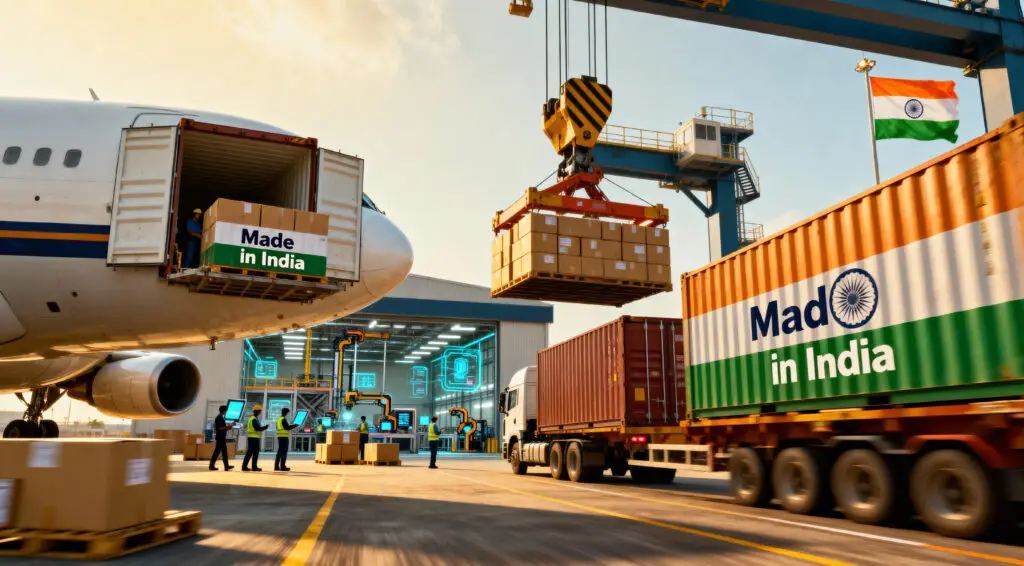Government Explores Easing of FDI Restrictions for E-Commerce
The Ministry of Commerce and Industry in India is looking at whether or not it is possible to allow foreign direct investment in e-commerce models that are dependent on inventories. The move is part of a bigger plan to improve the country’s exports and the expansion of digital trade.
Officials have started talking to important government ministries about possible frameworks and their effects on the economy. If the suggestion is put into action, it might change the way India exports digital goods and bring in a lot of foreign investment.

Source: LinkedIn
New Proposal Aims to Open Up Global Market Opportunities
Senior authorities said that China’s successful model is an example of how e-commerce may help increase exports. They think that making FDI rules more flexible may help Indian businesses develop in the same way that they do in big global markets.
Allowing international companies to take part in inventory-based systems will make logistics work better, lower prices, and make brands more visible. This strategy might speed up India’s rise as a major worldwide center for digital commerce exports.
Current FDI Policy Limits Foreign Control Over Inventory Sales
The automatic path for the marketplace model of e-commerce in India allows for 100% foreign direct investment (FDI). This mechanism lets platforms like Amazon and Flipkart connect customers and sellers without having to own the goods themselves.
But foreign investment is still limited in inventory-based models, where e-commerce companies sell items directly to customers. The restrictions that are in place now were created to stop unfair competition against domestic merchants and keep the marketplace fair.
Recommended Article: Cuba Charges Ex Economy Minister Gil With Espionage And Fraud
Proposed Changes Could Allow Export-Focused Inventory Systems
The Commerce Ministry is currently looking at a choice that would let people own inventory only for export. This kind of approach would still follow the rules for domestic retail, but it would also help commerce across countries.
Piyush Goyal, the Minister of Commerce and Industry, claimed that the change will provide e-commerce companies the option to keep stock that is purely for export. This framework’s goal is to increase the variety of products available and make commerce easier in India’s quickly rising digital economy.
E-Commerce Exports Expected to Drive Economic Growth
According to government figures, India’s e-commerce export business is worth between four and five billion dollars right now. By 2030, authorities expect e-commerce exports to expand by two hundred to three hundred billion dollars a year.
Fashion, home decor, handicrafts, technology, and organic beauty items are some of the most popular things to export. More access to foreign direct investment (FDI) might make these businesses more competitive by helping them embrace new technologies and build worldwide fulfillment networks.
Foreign Trade Policy 2023 Emphasizes Digital Export Expansion
The Foreign Trade Policy 2023 set up a complete system to encourage people to do business across borders online. It talks about goals for digital trade that are meant to make exporting easier and make it easier for online merchants to follow the rules.
The policy’s specific e-commerce chapter shows that the government is committed to increasing digital exports in the long run. It backs projects that are in line with how trade works across the world and makes sure that small and medium-sized businesses have equitable access to the market.
Government Incentives Encourage Export Competitiveness
Under the RoDTEP system, the government extended the time that exporters could avoid paying customs and taxes on their goods. These incentives now apply to e-commerce exports sent by mail and courier, giving small exporters all around the country more options.
In addition, new export hubs will be built with the help of the private sector. These changes, together with Digital India efforts, make payment systems better, make logistics easier, and encourage safe online verification methods for cross-border transactions.
Reforms Could Transform India Into a Global E-Commerce Powerhouse
Analysts think that making it easier for foreign direct investment (FDI) to flow into India may make the country one of the best places in the world to sell digital goods. Better infrastructure, clearer rules, and more cooperation with other countries are likely to bring in more investment and new ideas.
The proposed regulatory change might change the way India takes part in global value chains if it is done well. India may become a trusted leader in the expansion of international e-commerce by aligning its trade framework with trends in emerging markets.























